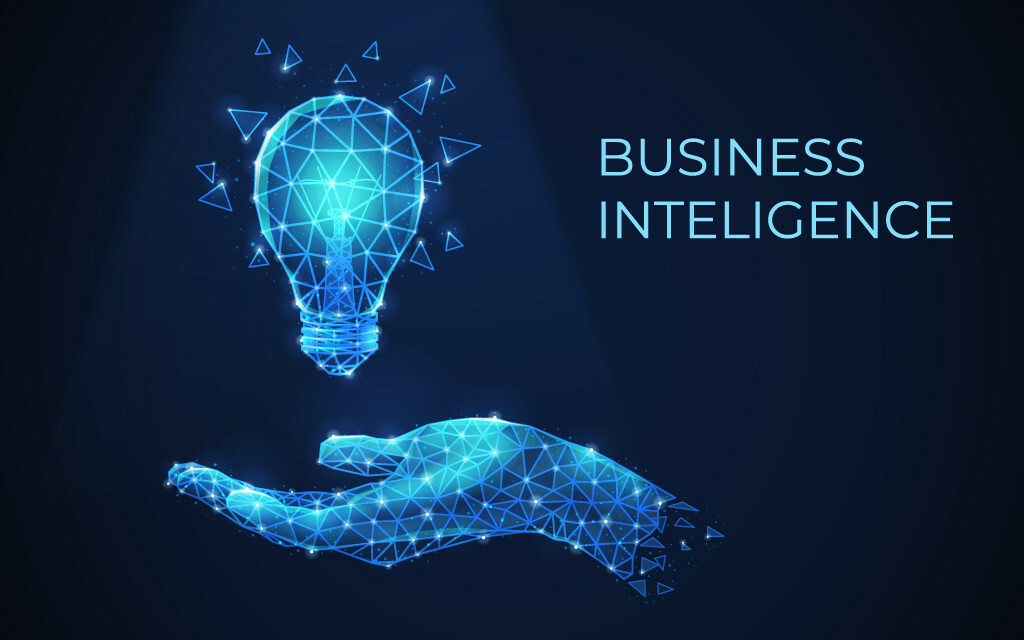Maximizing Efficiency and Profits with the Best Business Intelligence Tools for Real Estate Industry
They trust us:





Best Business Intelligence Tools For the Real Estate Industry
(source:https://images.app.goo.gl/zXNGfuaKPsa7ca5N9)
In the real estate industry, business intelligence tools are crucial for understanding market trends, analyzing data, and making informed business decisions. One of the best business intelligence tools for the industry is Tableau. This software offers a range of solutions, including data visualization, analytics, and reporting.
With its powerful tools and user-friendly interface, Tableau is an excellent choice for businesses looking to gain deeper insights into their data. Another popular business intelligence tool is Microsoft Power BI, which offers a range of features, including data visualization, analytics, and reporting. With its comprehensive tools and robust reporting, Microsoft Power BI is a great choice for businesses of all sizes.
Finally, QlikView is a comprehensive business intelligence tool that offers a range of solutions, including data visualization, analytics, and reporting. Its powerful tools make it an ideal choice for larger businesses with complex data needs. Overall, these business intelligence tools are essential for understanding market trends and making informed business decisions, making them a must-have for real estate professionals looking to improve their business performance.
What is Zebra BI?
Zebra BI is a software solution that provides businesses with tools to simplify their data models and report development cycles. By establishing consistency in reporting, Zebra BI helps ensure that reports are interpreted and understood the same way across an organization.
The software offers team licenses for plans of 10 or 50 users, as well as enterprise packages and unlimited site licenses. Zebra BI visuals for Power BI are currently the only IBCS-certified solution for Power BI, and all visuals are fully responsive and dynamic.
The software is also fully compliant with International Business Communication Standards (IBCS) and GDPR and CCPA compliant for data security. Zebra BI offers a range of tools and add-ins for Excel and PowerPoint, including variance charts, waterfalls, time series, dot plots, hills and valleys, and more.
Additionally, Zebra BI provides training and support for users, helping organizations upgrade their reporting systematically and successfully. Overall, Zebra BI is an innovative software solution that can help businesses streamline their reporting and make their data more accessible and understandable.
What are the features of Zebra BI?
Zebra BI is a business intelligence and data visualization software that helps users create reports, dashboards, and presentations. Some of the key features of Zebra BI include:
Data integration: Zebra BI can connect to multiple data sources, such as Excel, Google Sheets, and databases, to gather data and create reports.
Customizable templates: Users can choose from a variety of pre-built templates or create their own templates to suit their specific reporting needs.
Interactive dashboards: Zebra BI allows users to create interactive dashboards that enable them to drill down into data and gain insights.
Collaboration and sharing: Reports and dashboards can be easily shared with colleagues or clients, and users can collaborate on reports in real-time.
Mobile compatibility: Zebra BI’s reports and dashboards are optimized for mobile devices, allowing users to access and view data on-the-go.
Data visualization: Zebra BI’s data visualization tools help users transform complex data into easy-to-understand visualizations, such as charts, graphs, and tables.
Automatic report generation: Zebra BI can automate the report generation process, allowing users to schedule reports to be generated and distributed at specified intervals.
What is the pricing of Zebra BI?
Zebra BI offers a range of pricing plans to suit businesses of all sizes. The pricing is based on the total number of users, including designers and viewers. The license works on an annual subscription basis and customers are billed annually in advance on a recurring basis.
The pricing varies depending on the number of users, so businesses can estimate the number of report designers and viewers to find the perfect fit for their needs. Zebra BI also offers a free plan for personal use that includes free features and does not require a credit card.
The company provides pricing plans for Zebra BI for Power BI, Zebra BI for Office, and Zebra BI for PowerPoint, which have different starting prices and features. The pricing plans and features can be found on the Zebra BI website.
What is ActivTrak?
ActivTrak is a software-as-a-service platform designed to help businesses gain insights into employee productivity and engagement. It is a workforce analytics solution that collects and analyzes digital work activity data to provide organizations with a complete picture of work habits and potential blockers to success. ActivTrak’s platform is designed to be intuitive and affordable, making it well-suited for small to midsize businesses (SMBs) in both in-office and remote work settings.
Using the ActivTrak Agent, the platform collects data on employees’ app and website activity, while also detecting mouse and keyboard movement in the active window of a user’s computer. The platform then aggregates this data, allowing businesses to assess employee productivity and well-being. ActivTrak’s analytics capabilities provide organizations with instant visibility into employee productivity and engagement, enabling them to make decisions that lead to better outcomes.
Additionally, ActivTrak is a privacy-first analytics platform that is committed to safeguarding data privacy and security. The platform encrypts data in transit and at rest, while account information is encrypted during transit and while stored in a secure data center hosted by Google Cloud Platform (GCP).
Overall, ActivTrak is a powerful platform that provides businesses with deep insights into how work gets done, allowing them to optimize productivity, empower employees, and make agile decisions based on organization-wide productivity trends. The platform also includes features such as website blocking and API connectors and tools for external applications.
What are the features of ActivTrak?
ActivTrak is a workforce productivity tool designed to help organizations monitor and improve employee productivity. Some of its features include:
Real-time monitoring: ActivTrak provides real-time monitoring of employee activities on their computers, including the websites they visit, applications used, and time spent on each activity.
User behavior analytics: The platform uses user behavior analytics to identify patterns and trends in employee activity, helping managers and team leaders make data-driven decisions.
Activity logs: ActivTrak generates detailed activity logs for each employee, which can be used to track progress, identify areas of improvement, and measure productivity.
Website and application blocking: The tool allows administrators to block websites and applications that are deemed non-work-related or distracting.
Alarms and alerts: ActivTrak can be configured to trigger alarms and alerts for specific activities, such as accessing unauthorized websites or applications.
Reporting and analytics: The platform provides detailed reporting and analytics capabilities, allowing managers and team leaders to monitor productivity trends and identify areas of improvement.
Remote work monitoring: ActivTrak supports remote work monitoring, making it an ideal tool for organizations with a distributed workforce.
What is the pricing of ActivTrak?
ActivTrak is a workforce analytics software that offers a range of pricing plans to suit the needs of businesses of all sizes. ActivTrak’s pricing plans start at $0 and go up to $17 per user per month. The Free plan includes basic features and is ideal for small teams, whereas the Advanced plan includes more features and is ideal for larger teams.
The Premium plan includes all of the Advanced features, as well as additional capabilities such as individual and team productivity trends, employee burnout reporting, and workload balance. The pricing plans are billed monthly or annually, depending on the plan selected.
A free trial of ActivTrak is also available, allowing users to test the software before committing to a paid plan. It’s important to note that while the Free plan is free, the other plans require a minimum of 5 users. Users who require more information about the pricing plans or have any other questions can reach out to ActivTrak’s customer support team via email or chat.
What is Alteryx Designer?
Alteryx Designer is a powerful data analytics and preparation software tool that enables users to easily access, blend, and analyze data from multiple sources. With its intuitive drag-and-drop interface, Alteryx Designer allows users to quickly and easily prepare and transform data, automate workflows, and perform statistical, predictive, and spatial analytics without the need for coding.
It is widely used by data analysts, business analysts, data scientists, and other professionals across a variety of industries, including finance, healthcare, retail, and manufacturing. Alteryx Designer offers a range of features, including data profiling, data cleansing, data transformation, spatial analytics, predictive analytics, and more.
It is also highly customizable, with the ability to integrate with other tools and platforms. The latest version of Alteryx Designer, 2022.3, offers separate GA and FIPS 140-2 capable products, providing customers with more options and flexibility.
What are the features of Alteryx Designer?
Alteryx Designer is a data analytics and visualization software that allows users to prep, blend, and analyze data to gain insights and make data-driven decisions. Its features include:
Data preparation: Alteryx Designer allows users to clean, filter, and transform data from multiple sources into a single format.
Advanced analytics: The platform offers a wide range of predictive and statistical tools, including regression analysis, clustering, and decision trees.
Visual workflows: Alteryx Designer provides a visual interface for building workflows, allowing users to drag and drop tools and build custom workflows.
Machine learning: The platform provides machine learning capabilities that allow users to train models and make predictions.
Integration with external tools: Alteryx Designer integrates with a wide range of external tools, including R, Python, and Tableau.
Collaboration: The platform includes collaboration features that allow multiple users to work on the same project simultaneously.
Data governance and security: Alteryx Designer includes features for data governance, security, and compliance, ensuring that data is kept safe and secure.
What is the pricing of Alteryx Designer?
Alteryx Designer is a popular data preparation and analytics software that empowers users to automate their analytics and any business cases. The pricing of Alteryx Designer is based on an annual subscription fee per user, and the cost may vary depending on the specific version and package chosen.
The exact pricing information is available on the Alteryx website, where users can explore the available packages and features. Alteryx also offers a free 30-day trial of their Designer software, which provides users with full access to the platform and all its features.
Additionally, Alteryx offers flexible pricing options for teams and organizations, including customized packages to fit specific needs. Interested users can reach out to Alteryx for more information on pricing and to request a quote.
What is Boomi?
Boomi is a cloud-native integration platform that provides a cost-effective, high productivity integration solution to connect applications and data across an organization’s hybrid IT landscape. The platform is designed to be self-managing, self-learning, and self-scaling, allowing users to instantly connect apps, people, and things, and automate workflows and processes.
With Boomi, users can achieve access to consistent, accurate, and up-to-date data that is essential to their digital transformation efforts. Boomi Integration Platform as a Service (iPaaS) enables users to easily connect to data sources and applications, including OpenAPI, to securely enable data flows.
The Boomi platform consists of seven elements: master data hub, integration, data catalog & preparation, B2B/EDI management, API management, flow, and connectivity. It is a multi-tenant, cloud integration platform-as-a-service that integrates applications, data, and processes across all sizes of businesses.
Boomi provides data mapping, graphical workflow design, and more in an easy-to-use package. The platform can connect around 200 applications, over 100 endpoints, enhance business for about 5000 clients, and is a 100% cloud-native platform. It is easy to use and understand.
What are the features of Boomi?
Boomi is a cloud-native integration platform that enables businesses to easily connect and integrate their applications, data, and systems. Its features include:
Integration: Boomi offers pre-built connectors and integration templates for connecting various systems and applications, allowing businesses to quickly and easily integrate their data and processes.
Data management: Boomi offers data cleansing, enrichment, and transformation capabilities that help businesses ensure the quality and consistency of their data.
API management: Boomi provides API management tools that enable businesses to create, publish, and manage APIs, allowing them to expose their data and services securely and efficiently.
Workflow automation: Boomi offers drag-and-drop tools for building and automating workflows, allowing businesses to streamline their processes and reduce manual tasks.
Master data management: Boomi offers tools for managing master data, helping businesses maintain accurate and consistent data across their systems and applications.
EDI integration: Boomi provides EDI integration capabilities that enable businesses to connect with trading partners and automate their supply chain processes.
Real-time monitoring: Boomi offers real-time monitoring and alerting capabilities that help businesses ensure the availability and performance of their integrations and workflows.
Low-code development: Boomi provides a low-code development environment that allows businesses to build and customize integrations and workflows without extensive coding knowledge.
Multi-cloud deployment: Boomi can be deployed on multiple cloud platforms, including Amazon Web Services (AWS), Microsoft Azure, and Google Cloud Platform (GCP), providing businesses with flexibility and scalability.
What is the pricing of Boomi?
Boomi Integration is a cloud-native platform that enables users to instantly connect applications, people, and things. The platform provides integration capabilities, automated workflows and processes, and data synchronization features.
Boomi Integration pricing is subscription-based, and the cost is based on the number of connectors and features required. There are several editions available, from Base to Enterprise Plus, that cater to different business requirements and budgets. The Professional edition is priced at $2,000/month and is suitable for businesses looking to integrate their back-office and front-office completely.
The Pro Plus edition provides additional functionality to support real-time integration needs and costs $4,000/month. The Enterprise edition has advanced features to support complex enterprise needs and costs $8,000/month.
Boomi also offers a starter solution for small and medium-sized businesses to integrate two applications, which starts at a monthly fee of $549. It’s essential to note that pricing may vary based on individual requirements, and businesses can contact Boomi for more information on custom pricing plans.
What is Rayven?
Rayven is an industry 4.0 technology and services company that provides an integrated data, AI, and IoT platform to help critical, complex, machine-dependent industrial sectors. At the core of Rayven’s solution is the Dynamix all-in-one platform, which provides an easy-to-use solution to create real-time data aggregation and industrial applications.
Rayven’s platform enables businesses to achieve their operational and strategic objectives by delivering complete, end-to-end IoT solutions. Rayven’s platform allows businesses to collect, store, and process data from all their data sources in real-time in one place to deliver new insights.
Rayven offers a range of services, including design, deployment, utilization, and understanding of solutions, to assist businesses in making the most of their end-to-end platform and pre-built solutions. Rayven is a flexible, easy-to-use platform that enables businesses to create solutions with meaningful business outcomes to drive true transformation.
What are the features of Rayven?
Rayven is an end-to-end IoT platform that provides a range of features and capabilities for businesses to manage their IoT solutions. Some of the features of Rayven are:
Data Collection: Rayven’s platform collects data from a wide range of sensors, devices, and other data sources.
Data Integration: The platform provides pre-built integrations for a wide range of data sources and APIs, and also allows users to create their own custom integrations.
Data Processing: Rayven allows users to create workflows and automations to process incoming data, including data cleansing, aggregation, and analysis.
Data Visualization: The platform offers a range of visualization tools to help users understand their data, including dashboards, reports, and charts.
Alerting and Notification: Rayven’s platform can trigger alerts and notifications based on user-defined rules and thresholds.
Machine Learning: The platform includes pre-built machine learning models and allows users to build and train their own models for predictive analytics.
Security: Rayven offers a range of security features to protect data and ensure compliance with regulations, including encryption, user access controls, and audit trails.
Scalability: The platform is designed to scale as businesses grow, with the ability to handle large volumes of data and support thousands of devices.
Integrations: Rayven offers integrations with a range of third-party tools and platforms, including Amazon Web Services, Microsoft Azure, and Google Cloud Platform.
Customizability: Rayven offers customizable features and APIs, enabling businesses to tailor the platform to their specific needs.
What is the pricing of Rayven?
Rayven offers a flexible pricing model that allows customers to use as much or as little as they need. The license fees are based on data transactions, which are generated by data ingestion, calculations, and processing. To get an accurate pricing quote, it is necessary to contact Rayven directly.
Rayven’s platform is designed to help industrial businesses grow their use of real-time data and Industry 4.0 technology through bespoke, real-time industrial applications. Rayven is a codeless AI and IoT platform that enables users to create, operate, and optimize real-time monitoring, control, and predictive analytics solutions.
The platform is quick-to-deploy, simple-to-use, and affordable. Rayven’s typical customers are industrial businesses that are looking to accelerate their digital transformation.
What is Datameer?
Datameer is a SaaS platform that enables teams to easily and collaboratively transform data stored in Snowflake into meaningful insights. Datameer’s intuitive interface allows data analysts to explore, build, and automate data insights using SQL or a no-code approach.
With Datameer, users can easily access their Snowflake data and execute various transformations on it, such as joining, filtering, and extracting data, to answer analytical questions. Datameer’s powerful data catalog provides an e-commerce-like experience for data assets, and users can search across their entire data landscape and access metadata and documentation to help them move faster.
The platform is highly scalable and flexible, and enables users to accelerate the delivery of trusted datasets with a solution that combines the context of data catalogs with the power of data transformations. Datameer is a multi-persona solution that allows users to collaborate on building new datasets and provides a highly scalable and flexible environment to transform their data into meaningful analytics.
With Datameer, teams can easily and quickly transform their data into usable formats without waiting for IT assistance.
What are the features of Datameer?
Datameer is a big data analytics platform that provides a range of features to help organizations process and analyze large volumes of data. Some of the key features of Datameer include:
Data ingestion: Datameer allows users to import and ingest data from a wide range of sources, including databases, cloud storage, and social media platforms.
Data preparation: The platform offers tools to help users clean, transform, and prepare data for analysis, including support for complex data types such as JSON and XML.
Data analytics: Datameer provides a range of data analysis tools, including advanced statistical analysis, machine learning algorithms, and predictive modeling capabilities.
Data visualization: The platform offers a variety of data visualization tools, including dashboards and reports, to help users better understand and communicate insights from their data.
Data security and governance: Datameer includes features to help organizations ensure the security and governance of their data, including access control, encryption, and auditing capabilities.
Integration: Datameer can be integrated with other tools and platforms, including Hadoop, Spark, and cloud-based data storage solutions.
Collaboration: Datameer provides collaboration features that allow teams to work together on data analysis projects, including real-time collaboration and version control.
What is the pricing of Datameer?
Datameer is a cloud-based big data analytics platform that offers a range of pricing plans to meet the unique needs of various businesses. As per their website, Datameer doesn’t publicly share pricing information. To obtain pricing information for Datameer, one must contact their sales team, which can be scheduled for a quick call.
However, some sources state that Datameer has a per-user pricing model that provides flexible licensing options to their clients, so they only pay for what they use. Datameer also offers a free trial period for their Personal and Workgroup Editions for those who want to try out the platform’s capabilities before committing to a paid plan.
Overall, Datameer pricing is flexible and customized based on the needs of each business, and clients are encouraged to contact their sales team for more information on pricing and licensing options.
What are Business Intelligence tools?
Business Intelligence (BI) tools are software applications used to collect, analyze, and visualize data from various sources. These tools are designed to help businesses and organizations make data-driven decisions, improve their performance, and gain insights into their operations and customers.
BI tools typically include features such as data integration and management, data analysis and visualization, reporting and dashboard creation, and predictive modeling. They can be used to track a wide range of data, such as sales performance, customer behavior, and operational efficiency.
By using BI tools, businesses and organizations can gain insights into their operations, identify areas for improvement, and make data-driven decisions to optimize their performance. They can also track their progress towards their goals and KPIs, and adjust their strategies accordingly.
Some popular BI tools include Tableau, Microsoft Power BI, and QlikView. These tools can be used by businesses of all sizes and industries to collect and analyze data, and gain valuable insights into their operations and customers. Overall, BI tools are an important investment for any organization looking to improve their performance and gain a competitive edge.
Why should Real Estate companies use Business Intelligence tools?

(source:https://images.app.goo.gl/kiVp1hzHhXgmkpR56)
Real estate companies can benefit from using business intelligence tools to gain insights into their operations, make data-driven decisions, and gain a competitive edge. Business intelligence tools allow real estate companies to collect and analyze data from various sources, such as property performance, customer behavior, and market trends, and turn it into actionable insights.
These tools can help real estate companies to identify trends and patterns, optimize their processes, and make informed decisions about their operations and marketing strategies. Business intelligence tools can also provide real-time data and analytics, allowing real estate companies to monitor their performance and adjust their strategies on the fly.
Additionally, business intelligence tools can help real estate companies to identify opportunities for growth and expansion, by providing insights into new markets, customer segments, or product offerings. By using business intelligence tools, real estate companies can improve their efficiency and effectiveness, increase their revenue, and ultimately, grow their business.
What features should Business Intelligence tools include for Real Estate agents?
Business intelligence tools are essential for real estate agents who want to gain insights into their operations, market trends, and customer behavior. When it comes to choosing the right business intelligence tools, there are several key features that should be considered.
Firstly, the software should have an easy-to-use interface that allows real estate agents to quickly create and customize reports and dashboards. This is important because real estate agents often have a limited amount of time to devote to data analysis and need to be able to access insights quickly and easily.
Secondly, the software should have the ability to integrate with other tools and platforms used by real estate agents, such as CRM systems and accounting software. This allows for seamless data transfer and helps to streamline operations.
Thirdly, the software should have the ability to perform data analysis using a variety of techniques, including data mining, predictive analytics, and machine learning. This allows real estate agents to gain deeper insights into their operations and customer behavior.
Fourthly, the software should have the ability to generate customized reports and alerts based on key performance indicators (KPIs), allowing real estate agents to monitor their performance in real-time and make informed decisions about where to allocate resources.
Lastly, business intelligence tools for real estate agents should include features that allow for collaboration with other stakeholders such as marketing teams, sales teams, and IT teams. This ensures that everyone involved in the project is on the same page and can work together seamlessly to optimize operations and drive growth.
With these key features, real estate agents can gain valuable insights into their operations and customer behavior, identify areas for improvement, and make data-driven decisions that drive growth and competitive advantage.
What types of integrations are important with Business Intelligence tools for Real Estate agents?

(source:https://images.app.goo.gl/LfjXwQLQeG8Uhc6A8)
Integrations are an important aspect of business intelligence tools for real estate agents, as they can help to streamline workflows, improve data management, and gain insights into business performance. Some of the key integrations to look for when selecting a business intelligence tool include:
Customer relationship management (CRM) software: Integrating business intelligence tools with CRM software can allow real estate agents to manage their interactions with clients more effectively. This integration can help agents to access client data more easily, track the performance of their marketing campaigns, and personalize their communication with clients.
Accounting software: Integrating business intelligence tools with accounting software can allow real estate agents to manage their finances more effectively. This integration can help agents to track expenses, generate financial reports, and make informed business decisions.
Property management software: Integrating business intelligence tools with property management software can allow real estate agents to gain insights into property performance and occupancy rates. This integration can help agents to identify trends and patterns, optimize rental rates, and improve their property management strategy.
Marketing automation software: Integrating business intelligence tools with marketing automation software can allow real estate agents to track the performance of their marketing campaigns more effectively. This integration can help agents to track leads, analyze customer behavior, and optimize their marketing strategy.
By selecting a business intelligence tool with these integrations, real estate agents can streamline their workflows, improve their data management capabilities, and gain insights into their business performance, ultimately improving their business operations and growth.
What are the benefits of using Business Intelligence tools for Real Estate companies?
Business intelligence tools offer numerous benefits to real estate companies. Firstly, they provide a way to analyze and visualize data from various sources, allowing real estate companies to gain valuable insights into their business performance. This can help to inform decision-making and identify opportunities for growth and improvement.
Secondly, business intelligence tools can help real estate companies to monitor market trends and competition, providing a way to stay ahead of industry trends and identify new business opportunities. This can help to increase business agility and competitiveness.
Thirdly, business intelligence tools can help real estate companies to improve operational efficiency by identifying areas for process improvement and cost reduction. This can help to increase profitability and reduce expenses, ultimately leading to improved business outcomes.
Overall, the benefits of using business intelligence tools in the real estate industry are clear. They provide improved data analysis and visualization, market trend monitoring, and operational efficiency improvement. These benefits can ultimately lead to increased business success and profitability for real estate companies.
How to choose the right Business Intelligence tool for your Real Estate business?

(source:https://images.app.goo.gl/4Vs2RBryqg8nVAWf9)
Choosing the right business intelligence tool is important for any real estate business looking to analyze their data and make informed decisions. Here are some factors to consider when selecting a business intelligence tool:
Data sources: Look for a tool that can connect to and analyze data from multiple sources, such as your property management software, financial systems, and marketing platforms.
Analysis capabilities: Choose a tool that provides a range of analysis capabilities, such as data visualization, predictive modeling, and data mining, to help you uncover insights and make informed decisions.
Integration: Select a tool that integrates with your existing software and systems, such as your CRM or accounting software, to ensure a smooth workflow.
Security: Ensure the tool has robust security features, such as data encryption and access controls, to protect sensitive data.
Scalability: Look for a tool that can scale with your business as it grows, ensuring that it can continue to meet your business intelligence needs.
Ease of use: Consider the ease of use of the tool, with a user-friendly interface and intuitive analysis workflows, to ensure efficient and effective data analysis.
Cost: Compare the costs of different tools and choose one that fits your budget while still providing the functionality you need.
Support: Choose a tool that offers reliable customer support, including tutorials, forums, and live chat or phone support.
Ultimately, the right business intelligence tool can help you analyze your data effectively, uncover insights, and make informed decisions for your real estate business. By considering the above factors and choosing a tool that meets your specific needs, you can ensure that you have the right business intelligence solution in place.
How much does the Business Intelligence tools cost for the Real Estate industry?
Business intelligence tools are an important component of the real estate industry, enabling businesses to collect, analyze, and visualize data to make informed decisions and optimize their operations. The cost of business intelligence tools can vary widely, depending on the specific software and the features and capabilities it offers. Some basic business intelligence tools can be obtained for free, while more advanced and sophisticated software can cost several thousand dollars per year. For example, popular business intelligence tools like Tableau and Microsoft Power BI can cost between $10 to $70 per user per month, depending on the level of features and functionality required. However, some providers offer custom pricing plans, which can help real estate businesses to manage their costs more effectively. Additionally, some business intelligence tools are designed specifically for real estate businesses, which can provide tailored features and support. Overall, the cost of business intelligence tools will depend on the specific needs and budget of the real estate business, and it is important to carefully evaluate different options before making a decision.
Why are Business Intelligence tools important for the success of your Real Estate business?

(source:https://images.app.goo.gl/WuhpHbAGpXihY7Wf9)
Business intelligence (BI) tools have become increasingly important in the real estate industry, particularly for businesses that need to make data-driven decisions and stay competitive in a rapidly changing market. These tools offer a range of benefits that can help to improve the success of a real estate business.
One of the key benefits of business intelligence tools is that they can help real estate professionals to make data-driven decisions. By providing real-time insights into sales data, marketing performance, customer behavior, and other key metrics, BI tools can help real estate professionals to identify trends, opportunities, and potential risks, enabling them to make informed decisions that can improve the success of the business.
Another important advantage of BI tools is that they can help to improve efficiency and reduce costs. By automating the process of data collection, analysis, and reporting, BI tools can help to reduce the workload on administrative staff, enabling them to focus on higher value tasks and initiatives.
In addition, BI tools can help to improve customer satisfaction and retention rates. By providing real-time insights into customer behavior and preferences, BI tools can help real estate professionals to identify opportunities for improving the customer experience, while also enabling them to personalize marketing and sales efforts to better meet customer needs.
Overall, business intelligence tools are an essential component of any successful real estate business, providing real estate professionals with real-time insights into key metrics, enabling data-driven decision making, improving efficiency and reducing costs, and improving customer satisfaction and retention rates.
How to implement Business Intelligence tools as a realtor?
Implementing business intelligence tools as a realtor can help you analyze and leverage your data to make better business decisions, identify trends and opportunities, and optimize your operations. Here are some steps to help you get started:
Identify your business intelligence needs: Before implementing business intelligence tools, it’s important to identify your needs. What data do you need to collect and analyze, and what business questions do you want to answer?
Choose a business intelligence tool: There are many business intelligence tools available, each with its own set of features and capabilities. Some popular options for realtors include Tableau, Power BI, and Looker.
Set up your business intelligence system: Once you’ve chosen a business intelligence tool, you can start setting up your business intelligence system. This may involve connecting your data sources, creating data models, and setting up dashboards or reports.
Train your staff: With your business intelligence system set up, it’s important to train your staff on how to use it effectively. This may involve providing training materials or holding training sessions.
Monitor and optimize your business intelligence strategy: With your business intelligence system in place, it’s important to monitor and optimize your strategy regularly. Look for areas where you can improve your data collection or analysis, and use your insights to drive improvements.
By implementing business intelligence tools as a realtor, you can analyze and leverage your data to make better business decisions, identify trends and opportunities, and ultimately grow your business.
Which type of real estate companies should buy Business Intelligence software?

(source:https://images.app.goo.gl/HRYf6f2Bsfzu1iBn7)
Real estate companies of all sizes and types should consider purchasing business intelligence software. This type of software can help real estate professionals collect, analyze, and visualize data from various sources to gain insights into their operations and make data-driven decisions. Business intelligence software can help real estate companies identify trends, patterns, and opportunities in their data, allowing them to optimize their strategies and stay competitive in a dynamic market. Additionally, this software can provide real-time analytics and insights into key performance metrics, such as property values, rental rates, and occupancy rates. For example, business intelligence software can help real estate companies identify which neighborhoods or property types are in high demand, allowing them to adjust their portfolio accordingly. Finally, business intelligence software can help real estate companies save time and resources by automating tasks such as data collection, analysis, and reporting. Overall, business intelligence software can help real estate companies improve their decision-making, increase their efficiency, and stay ahead of the competition.
Final thoughts on using Business Intelligence tools for real estate agents
In conclusion, using Business Intelligence tools can be a valuable asset for real estate agents who want to make data-driven decisions about their business. These tools allow agents to analyze their business data, gain insights into key performance metrics, and identify areas for improvement.
By using Business Intelligence tools, agents can make informed decisions about their marketing strategies, pricing, and overall business operations. According to industry experts, companies that use Business Intelligence tools have seen a 20% increase in revenue and a 30% reduction in costs.
Overall, Business Intelligence tools can help real estate agents optimize their business performance, make better decisions, and ultimately, achieve greater success.
Top 6 Business Intelligence tools for real estate agents
| Zebra BI | |||
| ActivTrak | |||
| Alteryx Designer | |||
| Boomi | |||
| Rayven | |||
| Datameer |







